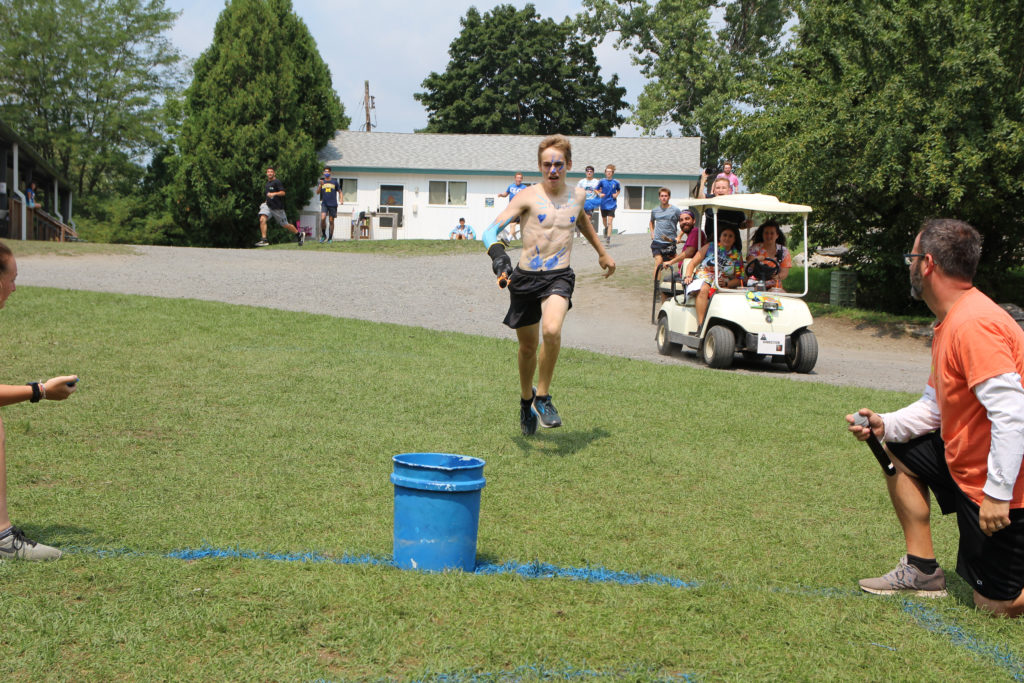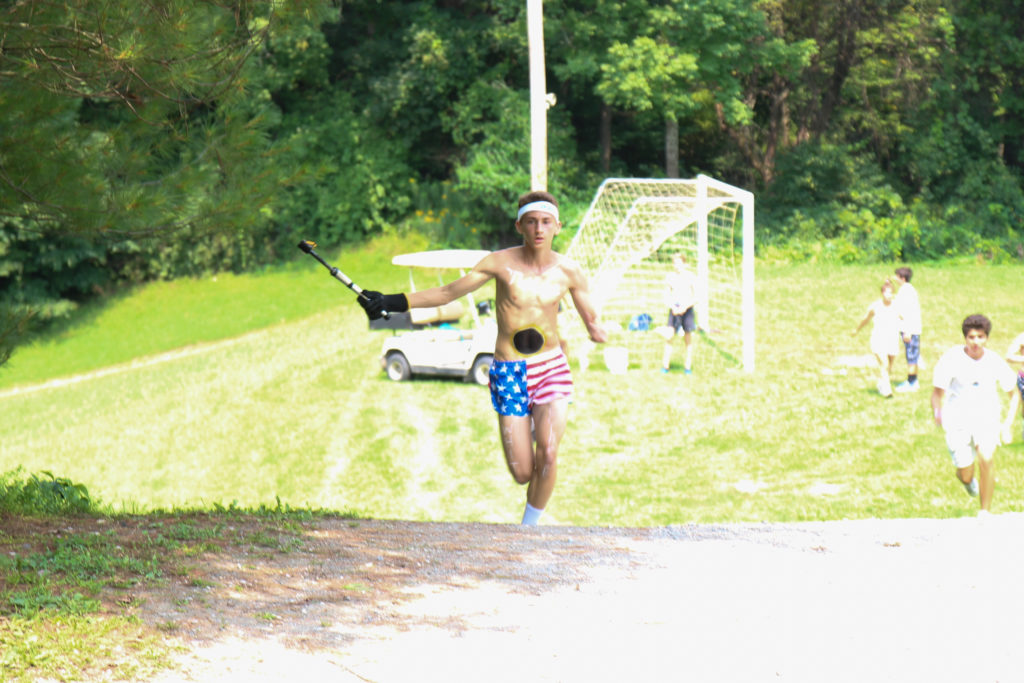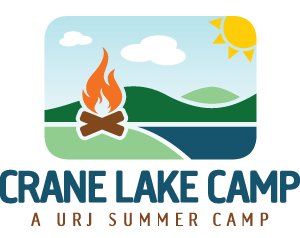By Isaac Kaufer, Crane Lake Alumnus & Jake Rudolph, Director of Digital Media
It’s already been three entire days with your team, with your captains and generals, and now you get to find out which team is smarter and faster in the Apache Relay – the final event before White and Blue sing their hearts out later that night. All imaginable tasks are incorporated and no one is left out as both teams engage in spirited competition with events like swimming, sprinting, basketball, archery, sprinting, mathematics, kayaking, bed-making, package-opening, dice-balancing, and, more sprinting. By the way, did we mention sprinting?! At the end of the all encompassing race, we are left with a more organized and strategically competent winner who can boast that their team was better at ‘camp’.
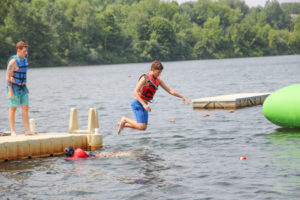 In due camp fashion, our programming masters (Yaelle & Jeremy) added a couple of relevant relay events to this summers list. For example, because of the new Rubix Cube Chugim and an unprecedented amount of Rubix-cubers at camp, completing one of those tantalizing cubes became necessary for advancing to the last events before the end of the race. Take it back to the very beginning of Apache, event #1 to be specific, and we have another quirk that made Color War 2018 stand-out from years past: deceptive batons. While generals are always in charge of starting the relay by breaking through an obstacle to receive blue and white batons (I.e. Smashing through a block of ice), Generals Louie Goldsmith (Blue) and Dani Bergman (White) broke through a box, inside of a box, that was inside of another box, which had a clue that pointed them to the batons. Usually, the batons are packaged safely away in just one box. Not this year – they were casually chilling out in the open on the main office porch. Apache is pure madness!
In due camp fashion, our programming masters (Yaelle & Jeremy) added a couple of relevant relay events to this summers list. For example, because of the new Rubix Cube Chugim and an unprecedented amount of Rubix-cubers at camp, completing one of those tantalizing cubes became necessary for advancing to the last events before the end of the race. Take it back to the very beginning of Apache, event #1 to be specific, and we have another quirk that made Color War 2018 stand-out from years past: deceptive batons. While generals are always in charge of starting the relay by breaking through an obstacle to receive blue and white batons (I.e. Smashing through a block of ice), Generals Louie Goldsmith (Blue) and Dani Bergman (White) broke through a box, inside of a box, that was inside of another box, which had a clue that pointed them to the batons. Usually, the batons are packaged safely away in just one box. Not this year – they were casually chilling out in the open on the main office porch. Apache is pure madness!
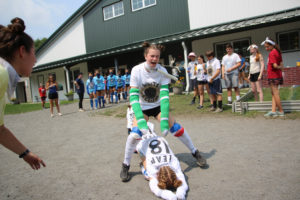
Both blue and white batons are passed for a total of 175 events in the camp-wide relay. The catch to Apache, however, is the fact that every camper must be involved. For the generals and captains, this creates a strenuous process of organization and delegation centered around making sure that each event has a camper who can complete their given task as quickly as possible. Moreover, counselors standby as supportive and inspiring coaches that embrace and exemplify the color war spirit for their hardworking campers. As a whole, the event lasts just about an hour, but each camper has only 15-30 seconds to shine and help their team take the lead by an extra second that could determine the final results.
Of course, this erratic event would be nothing without a fitting dramatic conclusion: with fire! Two captains elected by their peers have the honor of finishing up their team’s apache at the moment they receive their team’s baton from their teammate (who has just finished pushing a tennis ball across the soccer field with their nose). It is then instantaneously replaced by an oil-lit torch and some fireproof gloves, jumpstarting the most physically demanding event offered throughout the duration of Apache. From the bottom of camp (soccer field) to the top (main lawn), the “Torch Run” is known as a challenge of pure speed and endurance. Runners need to maintain top sprinting speeds for about 60 seconds on average, at a steep incline, all while holding a flaming torch behind them. This year, torch runners Joshua Goldberg (White) and Itamar Pres (Blue) both exceeded expectations as they each completed the haul in an astonishing 44 seconds! At the end of the sprint, the runners are greeted at the main lawn with load roars and enthusiastic cheering from literally the entire camp. The torches flame is then extinguished in a bucket of water, signifying that a team has finished the race. 